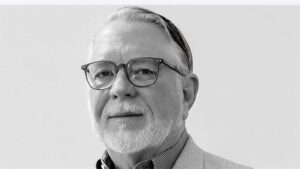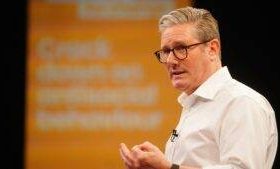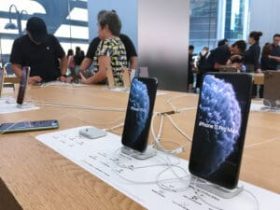
David Johnson is a seasoned technology executive with over two decades of experience leading IT and cybersecurity across the utility sector.
Born in north Texas and raised by his grandparents on the family farm in southern Oklahoma, David’s early life taught him hard work and resourcefulness—qualities he carried into his career.
David’s path to leadership was not typical. He started in IT operations at American Airlines in the late 1980s and worked his way up through key roles at Solid Systems, Deloitte & Touche Outsourcing, and the Electric Reliability Council of Texas (ERCOT). At ERCOT, he played a key role in modernising Texas’ electric grid during its early deregulation phase.
He later joined EPB in Chattanooga, Tennessee, helping to build one of North America’s first fully automated electric grids. His work there gained national attention and led to a decade-long tenure as CIO and CISO, where he partnered with national labs and helped shape smart grid technologies.
Most recently, David served as Chief Information Officer at Austin Water, where he oversaw enterprise systems and led digital transformation for the city’s utility services. He managed large budgets, implemented hybrid cloud strategies, and introduced new governance frameworks.
David is known for building strong teams, leading with integrity, and keeping a sharp focus on strategic goals. He holds a B.S. from Covenant College and has sat on multiple technology boards across education, government, and non-profits.
When he’s not working, he’s back on the family farm in Texas, raising cattle and remembering where it all began.
Q: David, let’s start at the beginning. What first drew you into technology?
I grew up on a farm in southern Oklahoma. We didn’t have much, but we made do. I didn’t even realise we were poor until school lunch programmes and food stamps came into the picture. I was always curious about how things worked. That turned into a fascination with technology. After high school in Rockwall, Texas, I got into data centre operations with American Airlines. That’s where my IT career really took off.
Q: How did your early roles shape your leadership style?
At American Airlines, I learned the importance of uptime, planning, and discipline. Later, at Deloitte & Touche and Solid Systems, I got a taste for managed services and client delivery. Those years taught me the value of accountability and communication. I’m naturally introverted, so I had to work hard to connect with people—learning that looking someone in the eye wasn’t a challenge, just respect.
Q: Your work at ERCOT sounds pivotal. Can you talk about your time there?
ERCOT was a turning point. It was the early 2000s, and Texas was undergoing deregulation in its electricity market. I led IT operations and joined market task force groups that were shaping the system. We processed over 35 million transactions a day. We had to bring integrity and structure to something that had been siloed and outdated. That’s where I first applied ITIL principles and got serious about operational governance.
Q: Then you moved to EPB in Chattanooga. What stands out from that chapter?
EPB was exciting. We were building one of the first fully automated electric grids in North America. We worked closely with national labs, pushed smart grid technologies, and brought high-speed internet to homes. I spent 11 years there, leading global teams and building out data centres. We focused on high availability systems—failovers, disaster recovery, hybrid environments. It was hands-on innovation.
Q: And most recently you’ve been with Austin Water. How was the transition from electric to water utilities?
Different challenges, but many of the same principles apply. At Austin Water, I was both CIO and CISO. I led digital transformation across departments—finance, HR, operations. We introduced enterprise resource planning systems, moved to cloud-based platforms, and tightened security standards. We aligned with HIPAA, PCI, and data privacy regulations. I also pushed for better data governance and strategic planning.
Q: Any challenges in driving change in public sector environments?
Plenty. Public agencies are naturally cautious, and rightly so. You need to build trust and explain the “why” behind each decision. For example, when we shifted to remote work infrastructure, I had to ensure security, uptime, and usability were aligned. Change management isn’t just about tech—it’s people, training, and culture.
Q: How do you define success today?
It’s not just hitting targets or saving money. For me, it’s the positive impact—on teams, communities, and the organisations I’ve served. I’ve been lucky to build strong teams and retain top talent for years. Seeing people I’ve mentored grow into leaders themselves—that’s the real win.
Q: Finally, how do you stay grounded?
I keep working the family farm. Raising cattle reminds me where I came from. I stay curious, always learning. Technology never stops, and neither should we.
Read more:
Power, Water, and Resilience: A Q&A with David Johnson






